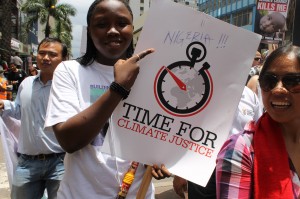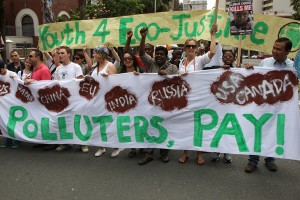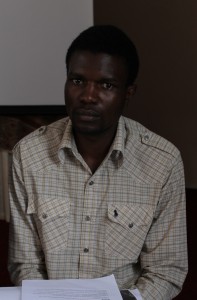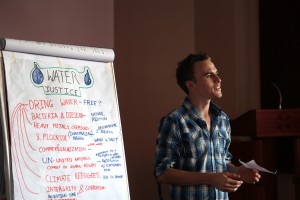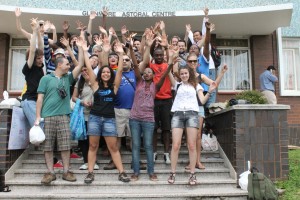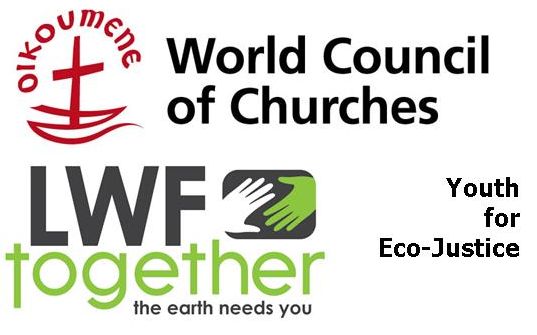Letter to my grandchild
Greeting in the name of our Lord Jesus Christ.
To my grand child, this letter is for you but you can share it with friends and even the whole world if you want.
Every time when I write I have a reason why I should write but this time I don’t specifically have one. Although I have no reason I strongly feel I should write I should share the feeling I have which if I fail to share you may one day blame my entire generation.
I am writing this letter while seated at the Glenmore Pastoral Centre media room IN Durban South Africa where about 28 Christian youths are meeting for an Eco-Justice Training organized by Lutheran World Federation (LWF) and World Council of Churches (WCC)
Grandchild, this train I am attending aims to educate us on avenues to use to spread the message that God’s creation needs better care from all of us. We are also looking at links between environment and socio-economic justice.
My dear grand daughter this training is taking place few kilometers from the International Conference Centre (ICC) where a United Nations climate change meeting is being held. This is the 17th Conference of Parties (COP) to the United Nation Framework Convention on Climate Change (UNFCCC).
Representatives from 194 nations of the world are here trying to push for a legally binding deal on climate change. They meet to safeguard your future so that you can enjoy good air and clean un-polluted water and basically to ensure Justice Ecology that supports all lives.
To be honest with you, I had no idea of what climate justice was all about and had no concern about in the past. I thought climate discussions were issues for the hardnosed academia’s and well educated people who understand the jargons and fat English used like climate credits…
I have realized that climate discussions is no longer an issue that can only be discussed in air conditioned conference rooms, but at all societal levels. Everyone has a responsibility. You won’t necessarily need PHD or Doctorate level of education to fully understand the fact that climate is changing and cause suffering to millions and our human activities are polluting the earth.
It is in this regard that am passionately involved in educating as many people as possible to take individual responsibility in improving our environment. I believe my efforts will bear fruits not only for you but also for your entire generation.
Countries with highest pollution levels were expected to collectively agree on alternative to reduce carbon emission during the climate discussions. This grandchild, would help mitigate the impacts and reduce gas emissions unfortunately the countries are playing games and politics with your life, ignoring my love for you and wishes I dearly have for you. I will continue doing my best just like the humming bird to make a difference in my own little way.
It seems the talks here in Durban may not deliver a legally binding agreement on climate change as I wished. I hope you won’t blame me for doing nothing, I was part of the huge demonstration here during the Global Day of Action attended by thousands of people who wish your generation clean environment.
One important thing you should tell your generation is that youths from 21 countries considered climate justice important and stopped their busy schedules and school programs to cement a good future for you.
What am engaged on in putting pen to paper encourages pause to my thoughts and gives me time to think more deeply about life and regain our equilibrium.
The best gift you would give to your generation is to use renewable energy and safeguard the only earth we have.
(Langa Lulanga is a youth from Lutheran church in Malawi and participated at the Eco-Justice training jointly organized by World Council of Churches and the Lutheran World Federation held in Durban, South Africa concurrently with the COP17 meeting)


